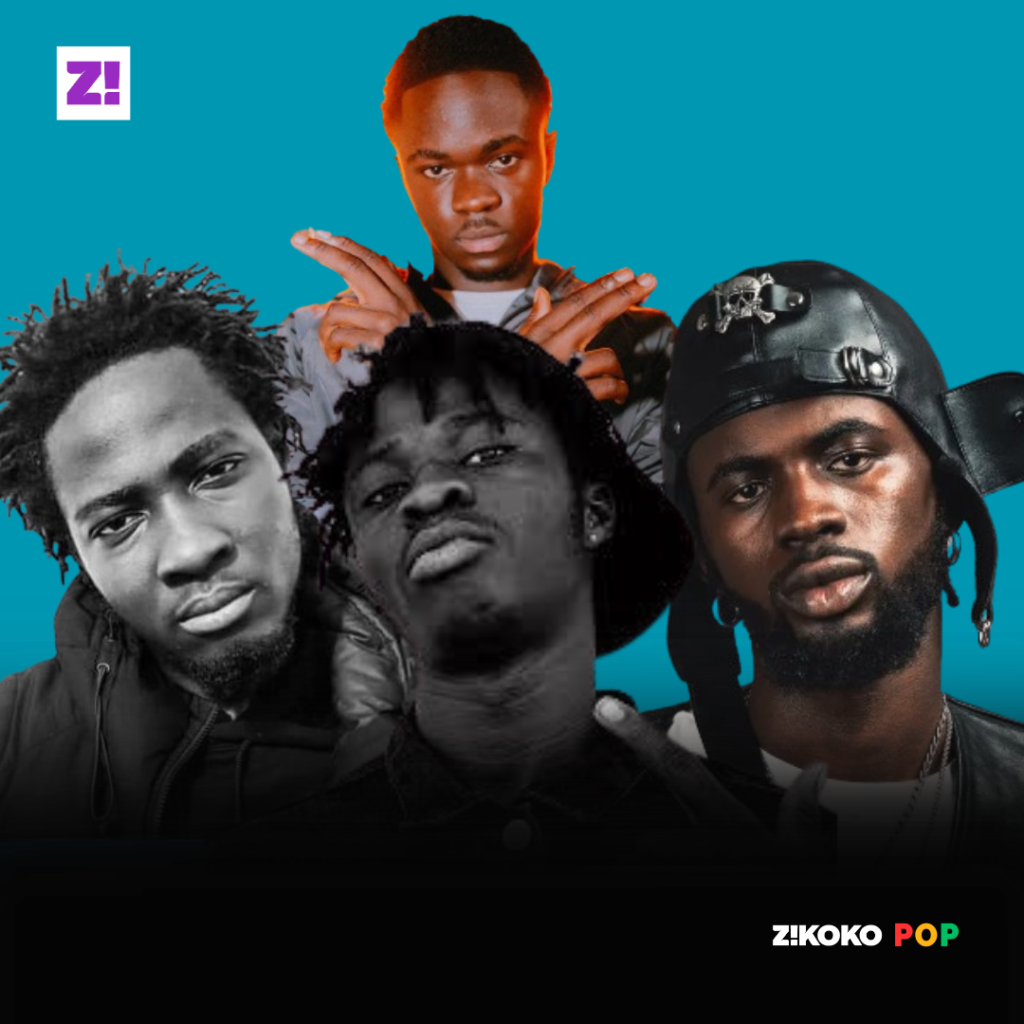
Ghana has always been popular for its thriving Hip-Hop and rap scene on the African continent. In 2020, the wave of drill music crashed on the Gold Coast, specifically Kumasi, and birthed a local sub-genre of rap music called “Asakaa” or Ghanaian Drill. It’s a blend of drill music and hiplife, characterised by red bandanas (an imitation of Los Angeles’ Blood gang), gang signs, streetwear, and the Indigenous elements of Kumasi.
Drill music is a youth-driven culture. Much like street-pop music, drill dives deep, painting a vivid picture of street life and activities.
Although many collectively refer to the music as “Asakaa”, the sub-genre shouldn’t be mistaken for the nine-man group and pioneer known as Asakaa Boys. “Asakaa”, coined by DJ and producer Rabby Jones, comes from the “Saka”, an informal pronunciation of “Kasa”, the Twi word for “talk.” Heavily influenced by the US culture and lifestyle, Asakaa Boys americanised their hometown Kumasi with a code name: Kumerica. It became a movement for these Kumasi drillers and inspired other famous Ghanaian artists like Black Sherif and Yaw Tog.
Ghanaian drill music became viral with Asakaa Boys’ Akatofoc single in 2020, a year after the group made Big Flex, their first drill jam. Drill music soon became trendy across cities, and more young Ghanaian artists started to hop and dragon-glide on it.
Four years after Asakaa, once considered underground, gained ground in Ghana, it has produced promising young music exports. It’s received global stars’ support from the UK’s Stormzy and Headie One. Ghanaian drill or Asakaa’s now also included in the popular genres in the new Grammys’ Best African Performance category introduced in 2023. So far in 2024, Asakaa playlists on Spotify have over two million streams and feature over 38 million user-created playlists.
Just like the 234Drill movement is growing to be the next big thing in the Nigerian music scene, Asakaa is gaining momentum in Ghana. If you want to get familiar with it, here’s a highlight of drillers making waves in the Asakaa movement.
reggie
reggie, AKA Reggie Osei, introduced drill music to Asakaa Boys, the Kumerica group credited for pioneering Ghanaian drill. With four projects (“Straight Outta Kumerica 1-2”, “2 TIMES A GUY”, and “Most High”) to his name, reggie has built a reputation as one of the most consistent drillers on the scene.
Black Sherif
Black Sherif went mainstream, singing about emotional pain on drill beats. “Of course, I fucked up / Who never fuck up, hands in the air” is arguably one of the most quoted lyrics in Nigeria and Ghana in 2022. Second Coming (original and remix) by Black Sherif buzzed so much that it won the Best Hip-Hop Song of the Year at the 2022 Vodafone Ghana Music Awards (VGMA). His successful “The Villain I Never Was” (2022) debut album is a bag of emotions and melodies— a proper introduction to Black Sherif’s music.
Yaw Tog
One of Ghana’s youngest music stars is Yaw Tog. Fame found him at age 17 in high school in 2020. Directly influenced by the Asakaa Boys, he became one of the Ghana drill’s torchbearers. Yaw Tog’s breakout single, Sore remix, features Kwesi Arthur and Stormzy. He’s witty, fierce, and unapologetically Ghanaian.
Jay Bahd
Jay Bahd’s strongest lyricism is street tales, youthful exuberance and new-found successes. If you dig that, add his music to your playlist. One of his recent singles, Hate, features African Hip-Hop legend Sarkodie.
O’Kenneth
O’Kenneth was featured on Yaw Tog’s Sore and Kawabanga’s Akatofoc, the records which helped propel Ghanaian drill to prominence in 2022. Since then, he’s released four albums and put himself in conversation. Spotify recognises him as one of the top five most streamed Ghanaian drillers on its platform.




